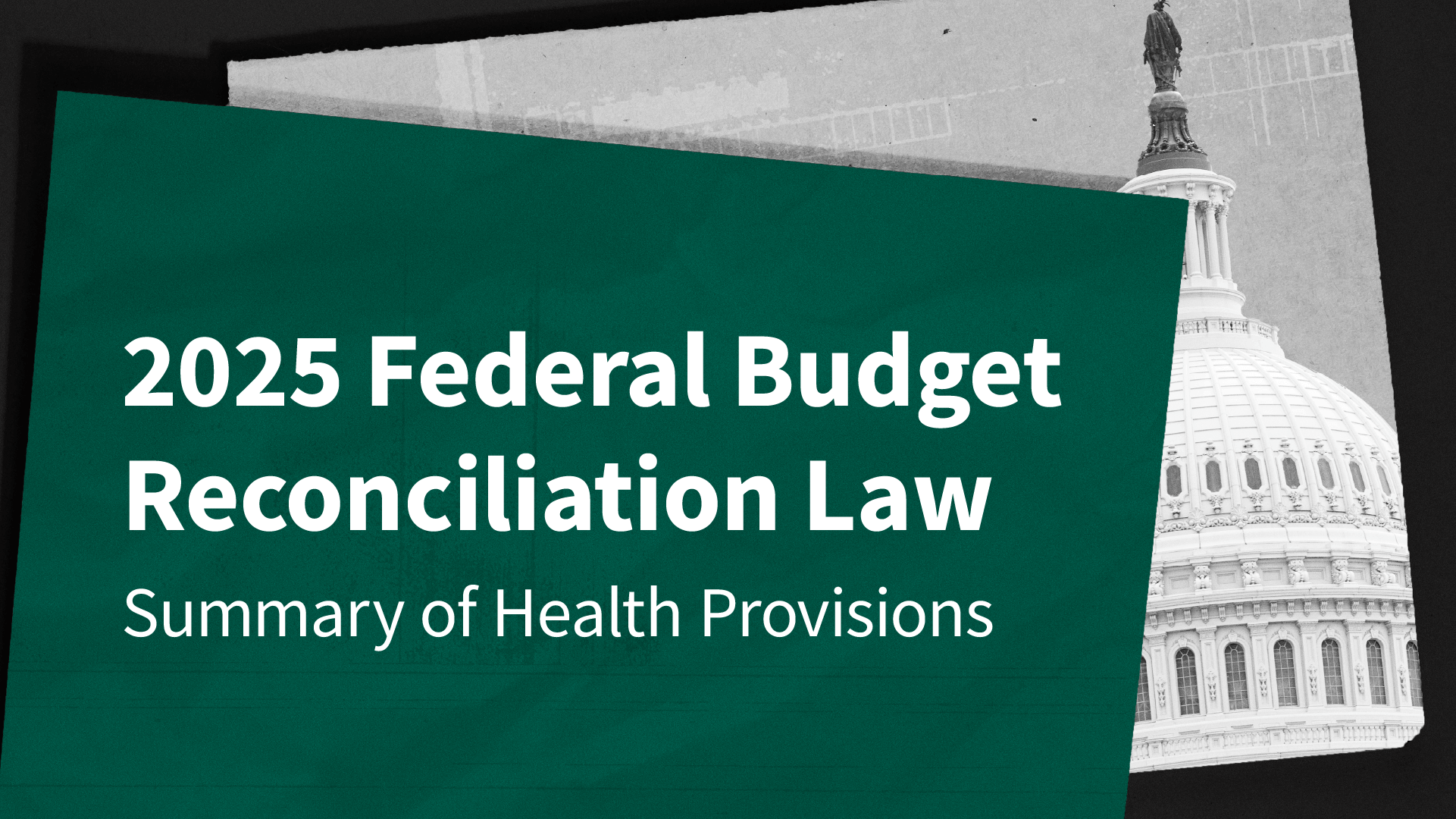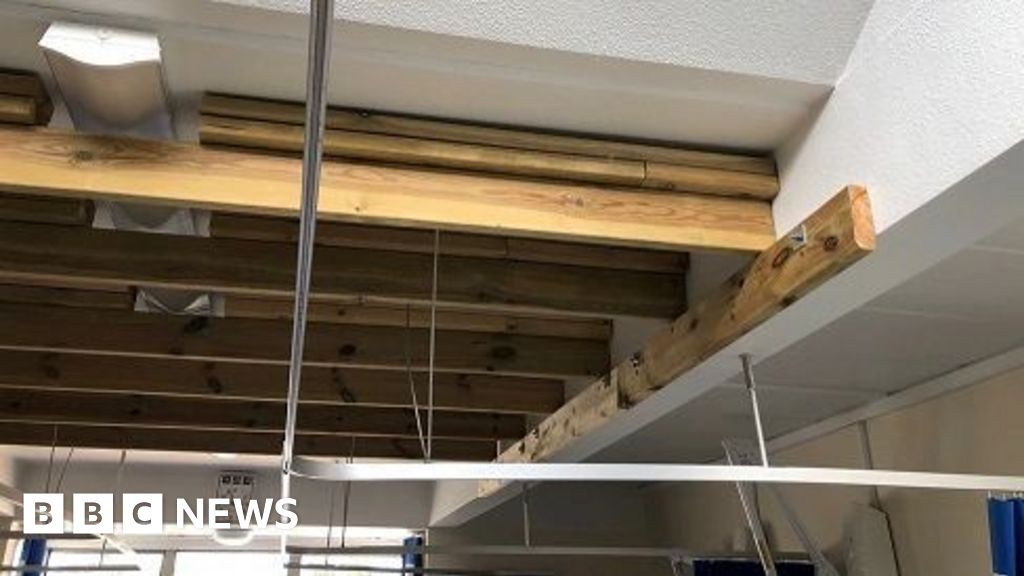Eligibility and Cost Sharing Policies
Section 71119: Work Requirements
Background
Prior to passage of the federal budget reconciliation law, Medicaid eligibility could not be conditioned on meeting a work or reporting requirement without obtaining a Medicaid Section 1115 waiver. During the first Trump administration, 13 states received approval to implement work requirements through Section 1115 waivers. Work requirement waiver approvals were either rescinded by the Biden administration or withdrawn by states, and Georgia is the only state with a Medicaid work requirement waiver currently in place. Since the beginning of Trump’s second term, some states have shown renewed interest in pursuing work requirement policies through 1115 waivers.
Description
- Requires states to condition Medicaid eligibility for individuals ages 19-64 applying for coverage or enrolled through the ACA expansion group (or a waiver) on working or participating in qualifying activities for at least 80 hours per month or attending school at least half-time.
- Mandates that states exempt certain adults, including parents with children ages 13 and under, those who are medically frail, and those who are participating in a substance use disorder treatment program, from the requirements.
- Requires states to verify that individuals applying for coverage meet the requirements for 1 and up to a maximum of 3 consecutive months preceding the month of application and that individuals who are enrolled meet the requirements for 1 or more months between the most recent eligibility redeterminations (at least twice per year).
- Requires states to use data matching “where possible” to verify whether an individual meets the requirement or qualifies for an exemption.
- Specifies that if a person is denied or disenrolled due to work requirements, they are also ineligible for subsidized Marketplace coverage.
- Prohibits these provisions from being waived, including under Section 1115 authority.
- Allows the Secretary to exempt states from compliance with the new requirements until no later than December 31, 2028, if the state is demonstrating a good faith effort to comply and submits progress in compliance or other barriers to compliance.
- Provides $200 million in funding to states for systems development for FY 2026 and an additional $200 million to HHS to support implementation (for FY 2026).
Effective Date: Not later than December 31, 2026, or earlier at state option.
Budgetary and Coverage Impact
CBO estimates this provision will reduce federal Medicaid spending by $326 billion over 10 years and will increase the number of people who are uninsured by 5.3 million in 2034.
KFF Resources
Section 71107: More Frequent Eligibility Determinations
Background
Under the Affordable Care Act (ACA), states are required to renew eligibility every 12 months for Medicaid enrollees whose eligibility is based on modified adjusted gross income (MAGI), including children, pregnant individuals, parents, and expansion adults. For enrollees whose eligibility is based on age 65+ or disability, states must renew eligibility at least every 12 months . States are required to review eligibility within the 12-month period if they receive information about a change in a beneficiary’s circumstances that may affect eligibility.
Description
- Requires states to conduct eligibility redeterminations every 6 months for Medicaid expansion adults.
- Provides $75 million in implementation funding for FY 2026.
Effective Date: For renewals scheduled on or after December 31, 2026.
Budgetary and Coverage Impact
CBO estimates this provision will reduce federal Medicaid spending by $63 billion over 10 years years and will increase the number of people who are uninsured by 700,000 in 2034.
KFF Resources
Section 71103: Verifying Enrollee Address and Other Information
Background
The Eligibility and Enrollment final rule issued in April 2024 requires states to leverage reliable data sources to update enrollee address information, effective June 2025.
Description
- Requires states to update enrollee address information using reliable data sources, including the National Change of Address Database and managed care entities.
- Requires the Secretary to establish a system to share information with states for purposes of preventing individuals from being simultaneously enrolled in two states and requires states to submit monthly enrollee SSNs and other information to the system.
Effective Date: January 1, 2027 for states to obtain contact information; October 1, 2029 to establish system to prevent enrollment in two states simultaneously.
Budgetary and Coverage Impact
CBO estimates this provision will reduce federal Medicaid spending by $17 billion over 10 years. This provision is not expected to impact the number of people who are uninsured.
KFF Resources
Section 71104: Ensuring Deceased Individuals Do Not Remain Enrolled
Description
- Requires states to review the Master Death File at least quarterly to determine if any enrolled individuals are deceased.
Effective Date: January 1, 2027.
Budgetary and Coverage Impact
CBO estimates this provision will not affect federal Medicaid spending over 10 years. This provision is not expected to impact the number of people who are uninsured.
KFF Resources
Section 71102: Eligibility and Enrollment Final Rule
Background
In April 2024, CMS issued a final rule to streamline application and enrollment processes in Medicaid, align renewal policies for all Medicaid enrollees, facilitate transitions between Medicaid, CHIP, and subsidized Marketplace coverage, and eliminate certain barriers in CHIP. Implementation deadlines for states vary across provisions, but many provisions in the rule are already in effect, and for others, states are already in compliance.
Description
- Prohibits the Secretary from implementing, administering, or enforcing certain provisions that have not yet taken effect in an April 2024 CMS final rule until October 1, 2034.
Effective Date: Upon enactment.
Budgetary and Coverage Impact
CBO estimates this provision will reduce federal Medicaid spending by $56 billion over 10 years and will increase the number of people who are uninsured by 400,000 in 2034.
KFF Resources
Section 71101: Medicare Savings Program Final Rule
Background
In September 2023, CMS issued a final rule to reduce barriers to enrollment in Medicare Savings Programs (MSPs), which provide Medicaid coverage of Medicare premiums and cost sharing for low-income Medicare beneficiaries. Implementation deadlines for states vary across provisions in the rule, but many provisions are already in effect, and for others, states are already in compliance.
Description
- Prohibits the Secretary from implementing, administering, or enforcing certain provisions in a September 2023 final rule that have not yet taken effect until October 1, 2034.
Effective Date: Upon enactment.
Budgetary and Coverage Impact
CBO estimates this provision will reduce federal Medicaid spending by $66 billion over 10 years. This provision is not expected to impact the number of people who are uninsured.
KFF Resources
Section 71109: Restricting Immigrant Eligibility for Medicaid and CHIP
Background
In addition to meeting other eligibility requirements, lawfully present immigrants must have a “qualified” immigration status to be eligible for Medicaid or CHIP. Qualified immigrants include: lawful permanent residents (LPRs); refugees; individuals granted parole for at least one year; individuals granted asylum or related relief; certain abused spouses and children; certain victims of trafficking; Cuban and Haitian entrants; and citizens of the Freely Associated States (COFA migrants) residing in states and territories. Many lawfully present immigrants must wait five years after obtaining qualified status before they may enroll in Medicaid; states may waive the five-year wait for children and pregnant individuals (referred to as the ICHIA option). Some states have state-only funded coverage programs for undocumented immigrants.
Description
- Restricts the definition of qualified immigrants for purposes of Medicaid or CHIP eligibility to Lawful Permanent Residents (“green card” holders), certain Cuban and Haitian immigrants, citizens of the Freely Associated States (COFA migrants) lawfully residing in the US, and lawfully residing children and pregnant adults in states that cover them under the ICHIA option.
- Provides $15 million in implementation funding for FY 2026.
Effective Date: October 1, 2026.
Budgetary and Coverage Impact
CBO estimates this provision will reduce federal Medicaid spending by $6 billion over 10 years and will increase the number of people who are uninsured by 100,000 in 2034.
KFF Resources
Section 71112: Retroactive Coverage
Background
Under current law, states are required to provide Medicaid coverage for qualified medical expenses incurred up to 90 days prior to the date of application for coverage.
Description
- Limits retroactive coverage to one month prior to application for coverage for individuals enrolled through the Medicaid expansion and two months prior to application for coverage for traditional enrollees.
- Provides $15 million in implementation funding for FY 2026.
Effective Date: January 1, 2027.
Budgetary and Coverage Impact
CBO estimates this provision will reduce federal Medicaid spending by $4 billion over 10 years and will increase the number of people who are uninsured by 100,000 in 2034.
Section 71120: New Cost Sharing Requirements for Certain Expansion Individuals
Background
States have the option to charge premiums and cost-sharing for Medicaid enrollees within limits, and certain populations and services (emergency, family planning, pregnancy and preventive) are exempt from cost-sharing. Cost-sharing is generally limited to nominal amounts but may be higher for those with income above 100% of the federal poverty level (FPL). Out-of-pocket costs cannot exceed 5% of family income. States may allow providers to deny services to enrollees for nonpayment of copayments.
Description
- Requires states to impose cost sharing of up to $35 per service on expansion adults with incomes 100-138% FPL; maintains existing exemptions of certain services from cost sharing and exempts primary care, mental health, and substance use disorder services and services provided by federally qualified health centers, behavioral health clinics, and rural health clinics from cost sharing; limits cost sharing for prescription drugs to nominal amounts.
- Maintains the 5% of family income cap on out-of-pocket costs.
- Permits states to allow providers to deny services for failure to pay cost sharing but does not prevent providers from reducing or waiving cost sharing.
- Eliminates enrollment fees or premiums for expansion adults.
Effective Date: October 1, 2028.
Budgetary and Coverage Impact
CBO estimates this provision will reduce federal Medicaid spending by $7 billion over 10 years. This provision is not expected to impact coverage.
KFF Resources
Financing
Section 71115: Provider Taxes
Background
States are permitted to finance the non-federal share of Medicaid spending through multiple sources, including state general funds, health care related taxes (or “provider taxes”), and local government funds. Federal rules specify provider taxes must be broad-based and uniform (i.e., states can’t limit provider taxes to only Medicaid providers) and may not hold providers “harmless” (i.e., guarantee providers receive their money back). The hold harmless requirement does not apply when tax revenues comprise 6% or less of providers’ net patient revenues from treating patients (referred to as the “safe harbor” limit).
Description
- Prohibits all states from establishing any new provider taxes or from increasing the rates of existing taxes.
- Reduces the safe harbor limit for states that have adopted the ACA expansion by 0.5% annually starting in fiscal year 2028 until the safe harbor limit reaches 3.5% in FY 2032.
- Applies the new safe harbor limit in expansion states to state and local government taxes on all providers except nursing facilities and intermediate care facilities.
- Provides $20 million in implementation funding for FY 2026.
Effective Date: Upon enactment for prohibition of new or increased taxes; October 1, 2027 for reduction in safe harbor limit.
Budgetary and Coverage Impact
CBO estimates this provision will reduce federal Medicaid spending by $191 billion over 10 years and will increase the number of people who are uninsured by 1.1 million in 2034.
KFF Resources
Section 71117: Requirements for Provider Tax Uniformity Waivers
Background
States are permitted to finance the non-federal share of Medicaid spending through multiple sources, including state general funds, health care related taxes (or “provider taxes”), and local government funds. Federal rules specify provider taxes must be broad-based and uniform (i.e., states can’t limit provider taxes to only Medicaid providers) and may not hold providers “harmless” (i.e., guarantee providers receive their money back).
Description
- Revises the conditions under which states may receive a waiver of the requirement that taxes be broad-based and uniform so that some currently permissible taxes, such as those on managed care plans, will no longer be permissible in future years.
- Provision overlaps with a proposed rule released May 12, 2025.
Effective Date: Upon enactment; HHS Secretary may provide a transition period of up to three years.
Budgetary and Coverage Impact
CBO estimates this provision will reduce federal Medicaid spending by $35 billion over 10 years and will increase the number of people who are uninsured by 100,000 in 2034.
KFF Resources
Section 71116: State Directed Payments
Background
States are generally not permitted to direct how managed care organizations (MCOs) pay their providers. However, subject to CMS approval, states may use “state directed payments” (SDPs) to require MCOs to pay providers certain rates, make uniform rate increases (that are like fee-for-service supplemental payments), or to use certain payment methods.
A 2024 rule on access to care in Medicaid managed care codified that the upper limit for SDPs is the average commercial rate for hospitals and nursing facilities, which is generally higher than the Medicare payment ceiling used for other Medicaid fee-for-service supplemental payments.
Description
- Directs HHS to revise Medicaid regulations for state directed payment to cap the total payment rate for inpatient hospital and nursing facility services at 100% of the total published Medicare payment rate for expansion states and at 110% of the total published Medicare payment rate for non-expansion states.
- Prevents payments approved after May 1, 2025 in excess of the new limits from taking effect unless they are for rural hospitals.
- Reduces existing payments that are above the allowable Medicare-related payment limit by 10 percentage points each year until they reach the new lower limit.
- Specifies that in the absence of published Medicare payment rates, the limit is set at the Medicaid fee-for-service payment rate.
Effective Date: Upon enactment for lower limit on new state directed payments; January 1, 2028 for reduction in existing state directed payments above new allowable Medicare-related limit.
Budgetary and Coverage Impact
CBO estimates this provision will reduce federal Medicaid spending by $149 billion over 10 years. This provision is not expected to impact coverage.
KFF Resources
Section 71118: Section 1115 Demonstration Waiver Budget Neutrality
Background
Under long-standing policy and practice, Section 1115 demonstration waivers must be “budget neutral” to the federal government over the course of the waiver. Federal costs under an 1115 waiver may not exceed what they would have been for that state without the waiver. Typically, budget neutrality calculations are determined on a per enrollee basis—so, per enrollee spending over the course of the waiver (usually 5 years) cannot exceed the projected per enrollee spending calculated in the “without-waiver baseline.”
Budget neutrality calculations and the use of “savings” when expenditures decrease on account of the waiver are negotiated between states and CMS and the Office of Management and Budget.
Description
- Specifies the Chief Actuary for CMS must certify 1115 waivers are not expected to result in an increase in federal expenditures compared to federal expenditures without the waiver.
- Provides $5 million in implementation funding for each of FY 2026 and FY 2027.
Effective Date: January 1, 2027.
Budgetary and Coverage Impact
CBO estimates this provision will reduce federal Medicaid spending by $3 billion over 10 years. This provision is not expected to impact coverage.
KFF Resources
Section 71106: Payment Reduction for Certain Erroneous Medicaid Payments
Background
Federal law directs CMS to recoup federal funds for erroneous payments made for ineligible individuals and overpayments for eligible individuals if the state’s eligibility “error rate” exceeds 3%. CMS may waive the recoupment if the Medicaid agency has taken steps to demonstrate a “good faith” effort to get below the 3% allowable threshold.
Description
- Requires HHS to reduce federal financial participation to states for identified improper payment errors related to payments made for ineligible individuals and overpayments made for eligible individuals.
- Expands the definition of improper payments to include payments where insufficient information is available to confirm eligibility.
Effective Date: October 1, 2029.
Budgetary and Coverage Impact
CBO estimates this provision will reduce federal Medicaid spending by $8 billion over 10 years and will increase the number of people who are uninsured by 100,000 in 2034.
KFF Resources
Medicaid Expansion
Section 71114: Eliminating Temporary Financial Incentive for Medicaid Expansion
Background
The Affordable Care Act expands Medicaid eligibility to non-elderly adults with incomes up to 138% FPL based on modified adjusted gross income and provides 90% federal financing for the expansion population. The Supreme Court effectively made expansion an option for states. The American Rescue Plan Act (ARPA) added a temporary financial incentive for states that newly adopt expansion. Currently, 41 states, including DC, have implemented the Medicaid expansion.
Description
- Eliminates the temporary incentive for states that newly adopt the Medicaid expansion.
Effective Date: January 1, 2026.
Budgetary and Coverage Impact
CBO estimates this provision will reduce federal Medicaid spending by $14 billion over 10 years and will increase the number of people who are uninsured by 100,000 in 2034.
KFF Resources
Section 71110: Federal Medical Assistance Percentage (FMAP) for Emergency Medicaid
Background
Emergency Medicaid reimburses hospitals for the costs of emergency care provided to immigrants who would qualify for Medicaid except for their immigration status, which hospitals are required to provide under federal law. States receive federal matching payments based on the federal medical assistance percentage (FMAP), which is computed using a formula that takes into account states’ per capita income, for traditional populations; they receive a 90% federal match rate for individuals enrolled in the Medicaid expansion.
Description
- Limits federal matching payments for Emergency Medicaid for individuals who would otherwise be eligible for expansion coverage except for their immigration status to the state’s regular FMAP.
- Provides $1 million in implementation funding for FY 2026.
Effective Date: October 1, 2026.
Budgetary and Coverage Impact
CBO estimates this provision will reduce federal Medicaid spending by $28 billion over 10 years. This provision is not expected to impact coverage.
KFF Resources
Long-term Care
Section 71111: Nursing Home Staffing Final Rule
Background
A 2024 Biden-administration final rule requires long-term care facilities (LTC) to meet minimum staffing levels (including a 24/7 RN on-site and a minimum of 3.48 total nurse staffing hours per resident day), requires state Medicaid agencies to report the share of Medicaid payments for institutional LTC that are spent on worker compensation, and provides funding for people to enter careers in nursing homes.
Description
- Prohibits the Secretary of Health and Human Services from implementing, administering, or enforcing the minimum staffing levels required by the final rule until October 1, 2034.
Effective Date: Upon enactment.
Budgetary and Coverage Impact
CBO estimates this provision will reduce federal Medicaid spending by $23 billion over 10 years. This provision is not expected to impact coverage.
KFF Resources
Section 71108: Home Equity Limits
Background
Most Medicaid enrollees who qualify for Medicaid because they need long-term care (LTC) are subject to limits on their home equity. In 2025, federal rules specified that states’ limits on home equity must be between $730,000 and $1,097,000, and those amounts are updated each year for inflation.
Description
- Reduces the maximum home equity limits to $1,000,000 regardless of inflation.
- Allows states to apply different requirements for homes that are located on farms.
Effective Date: January 1, 2028.
Budgetary and Coverage Impact
CBO estimates this provision will reduce federal Medicaid spending by $195 million over 10 years. This provision is not expected to impact the number of people who are uninsured.
KFF Resources
Section 71121: New Home and Community Based Services (HCBS)
Background
States are required to cover nursing facility care under Medicaid, but nearly all home care (HCBS) is optional. Nearly all states provide home care through “1915(c) waivers,” which limit services to people who require an institutional level of care. Because those services are optional, states may limit the amount of care people receive and the number of people receiving services. Most states have waiting lists because the number of people seeking services exceeds the amount of care available.
Description
- Allows states to establish 1915(c) HCBS waivers for people who do not need an institutional level of care.
- Requires state waiver submissions to demonstrate that new waivers will not increase the average amount of time that people who need an institutional level of care will wait for services.
- Includes $50 million in FY 2026 and $100 million in FY 2027 for implementation.
Effective Date: July 1, 2028 for new waiver approvals.
Budgetary and Coverage Impact
CBO estimates this provision will increase federal Medicaid spending by $7 billion over 10 years. This provision is not expected to impact the number of people who are uninsured.
KFF Resources
Access
Section 71401: Rural Health Transformation Program
Description
- Establishes a rural health transformation program that will provide $50 billion in grants to states between fiscal years 2026 and 2030, to be used for payments to rural health care providers and for other purposes.
- Distributes 50% of payments equally across states with approved applications; the remaining funds will be distributed by CMS based at least in part on states’ rural populations that live in metropolitan statistical areas, the percent of rural health facilities nationwide that are located in a state, and the situation of hospitals that serve a disproportionate number of low-income patients with special needs.
- Uses of funds include promoting care interventions, paying for health care services, expanding the rural health workforce, and providing technical or operational assistance aimed at system transformation.
- Provides CMS with $200 million in implementation funding for FY 2025.
Effective Date: Upon enactment but funding is first available in fiscal year 2026. CMS to determine state application deadline, which will be no later than December 31, 2025.
Budgetary and Coverage Impact
CBO estimates this provision will increase federal spending by $47 billion over 10 years. This provision is not expected to impact coverage.
KFF Resources
Section 71113: Prohibiting Federal Medicaid Payments to Certain Providers
Background
States must generally allow beneficiaries to obtain Medicaid services from any provider that is qualified and willing to furnish services. Managed care organizations (MCOs) may restrict enrollees to providers in the MCO’s network, except that such plans cannot restrict free choice of family planning providers.
Description
- Prohibits federal Medicaid funds to be paid to providers that meet the following criteria on October 1, 2025: are nonprofit organizations, essential community providers primarily engaged in family planning services or reproductive services, provide for abortions outside of the Hyde exceptions and received $800,000 or more in payments from Medicaid in 2023; this would affect Planned Parenthood and other Medicaid essential community providers.
- Provides $1 million in implementation funding for FY 2026.
Effective Date: Upon enactment for 1 year; implementation is currently blocked for some providers due to ongoing litigation.
Budgetary and Coverage Impact
CBO estimates this provision will increase federal spending by $53 million over 10 years. This provision is not expected to impact coverage.
KFF Resources
Section 71105: Medicaid Provider Screening Requirements
Background
Provider screening and enrollment is required for all providers in Medicaid fee-for-service or managed care networks. Additionally, the ACA requires states to terminate provider participation in Medicaid if the provider was terminated under Medicare or another state program. CMS has multiple tools to assist states with provider screening and enrollment compliance, including leveraging Medicare data.
Description
- Requires states to conduct checks at provider enrollment or reenrollment and on a quarterly basis of the Social Security Administration’s Death Master File to determine whether providers enrolled in Medicaid are deceased.
Effective Date: January 1, 2028.
Budgetary and Coverage Impact
CBO estimates this provision will not affect federal Medicaid spending over 10 years. This provision is not expected to impact coverage.
KFF Resources







